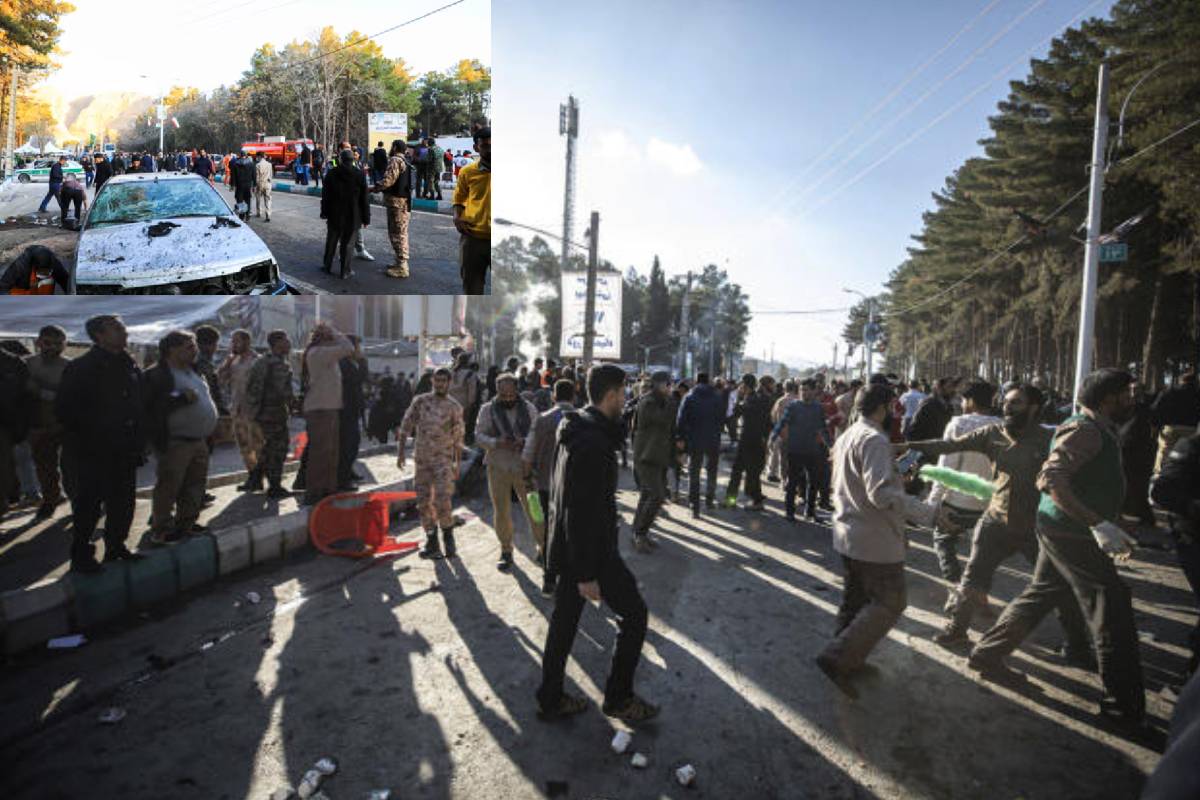NEW DELHI: In a twin attack near the tomb of Iranian General Qasem Soleimani, at least 103 people have lost their lives, and 141 others are wounded. The incident occurred during a procession marking the fourth anniversary of Soleimani’s assassination in a US drone strike in Iraq.
The explosions took place in the city of Kerman. Videos depict chaos and panic as bodies litter the road, and ambulances rush to the scene. Footage broadcast by Iranian state TV showed large crowds were taking part in a procession along a road lined with banners featuring Qasem Soleimani when the explosions happened.
Iran’s Supreme Leader, Ayatollah Ali Khamenei, vowed a “harsh response” to the “terrorist attack.”
ALSO READ:Leveraging Houthis, Hezbollah: Tehran expert on Iran’s ‘indirect’ role in Israel-Hamas war
The first bomb detonated around 3 pm local time, approximately 700 metres from the Garden of Martyrs cemetery, with the second explosion occurring about 15 minutes later, targeting those fleeing the initial blast. Suspicion falls on groups like Arab separatists and Sunni jihadist organisations, but no claims have been made, according to Iran’s media.
Iranian officials, including President Ebrahim Raisi and Interior Minister Ahmad Vahid, denounced the attack as a “cowardly act” perpetrated by “Iran-hating criminals.” Ayatollah Khamenei expressed condolences to the victims’ families and promised a swift and firm response to those responsible.
ALSO READ: India-Iran are bedfellows: Tehran expert on BRICS+ bond | EXCLUSIVE
The international community condemned the bombings, with UN Secretary-General António Guterres extending deep condolences, the EU expressing solidarity with the Iranian people, and Russian President Vladimir Putin deeming the attack “shocking in its cruelty and cynicism.”
According to the country’s media reports, former British Ambassador to Iran, Rob Macaire, highlighted the uncertainty surrounding the perpetrators, emphasising the potential involvement of opposition groups capable of violent acts. The leader of Lebanon’s Hezbollah, backed by Iran, referred to the victims as “martyrs” in the same cause championed by Soleimani.
As the investigation unfolds, questions remain about the nature of the attack and its potential geopolitical ramifications.









